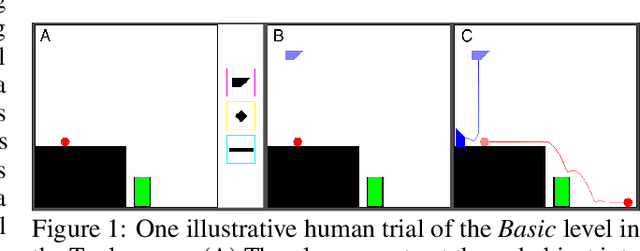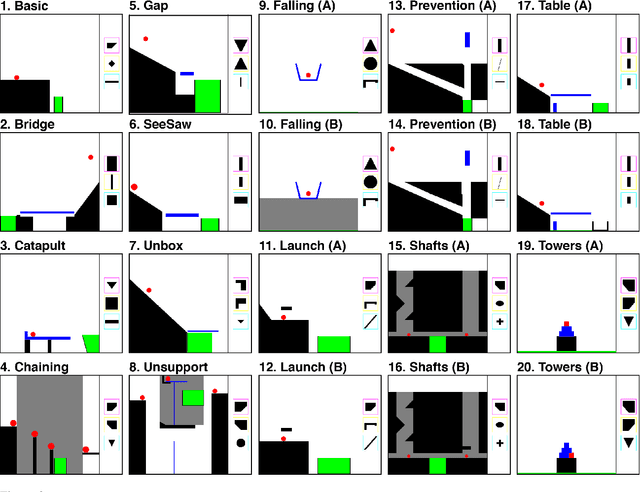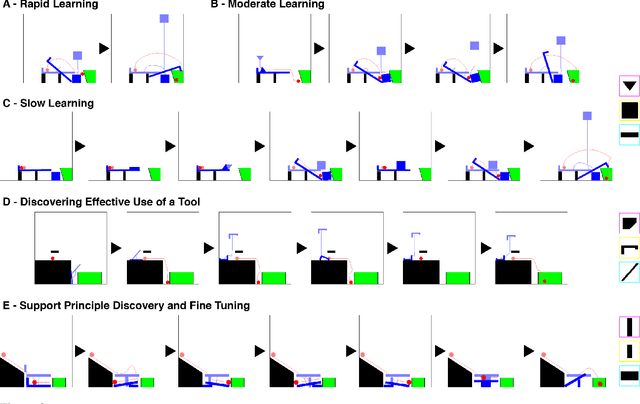The Tools Challenge: Rapid Trial-and-Error Learning in Physical Problem Solving
Paper and Code
Jul 25, 2019



Many animals, and an increasing number of artificial agents, display sophisticated capabilities to perceive and manipulate objects. But human beings remain distinctive in their capacity for flexible, creative tool use -- using objects in new ways to act on the world, achieve a goal, or solve a problem. Here we introduce the "Tools" game, a simple but challenging domain for studying this behavior in human and artificial agents. Players place objects in a dynamic scene to accomplish a goal that can only be achieved if those objects interact with other scene elements in appropriate ways: for instance, launching, blocking, supporting or tipping them. Only a few attempts are permitted, requiring rapid trial-and-error learning if a solution is not found at first. We propose a "Sample, Simulate, Update" (SSUP) framework for modeling how people solve these challenges, based on exploiting rich world knowledge to sample actions that would lead to successful outcomes, simulate candidate actions before trying them out, and update beliefs about which tools and actions are best in a rapid learning loop. SSUP captures human performance well across 20 levels of the Tools game, and fits significantly better than alternate accounts based on deep reinforcement learning or learning the simulator parameters online. We discuss how the Tools challenge might guide the development of better physical reasoning agents in AI, as well as better accounts of human physical reasoning and tool use.
 Add to Chrome
Add to Chrome Add to Firefox
Add to Firefox Add to Edge
Add to Edge